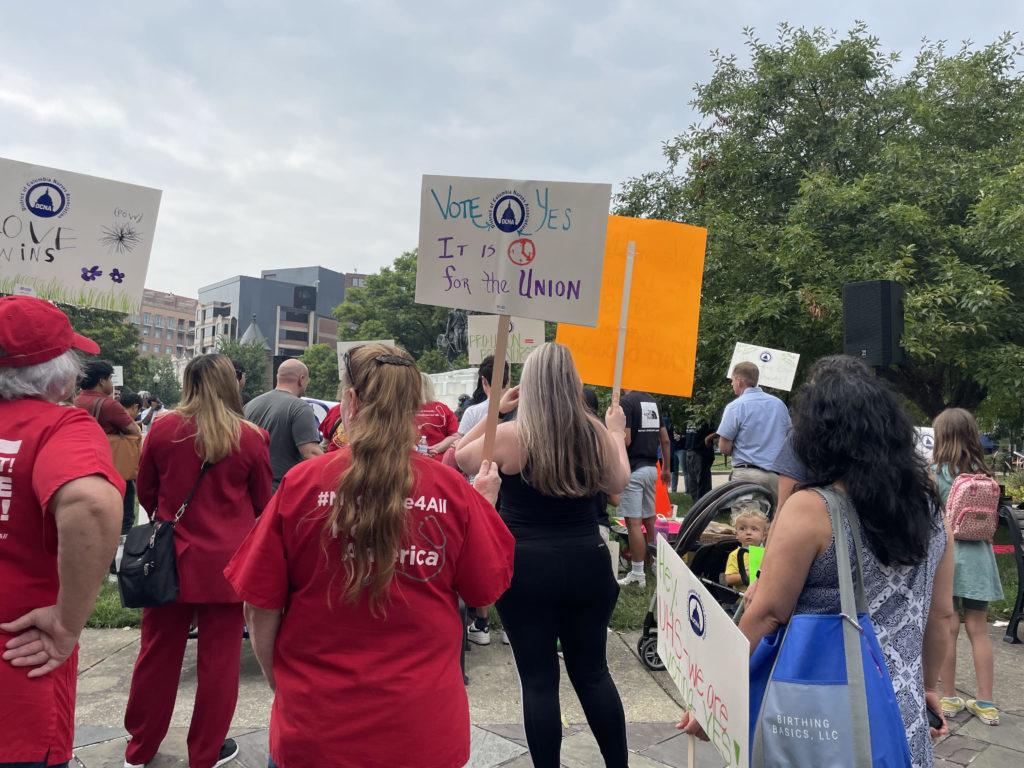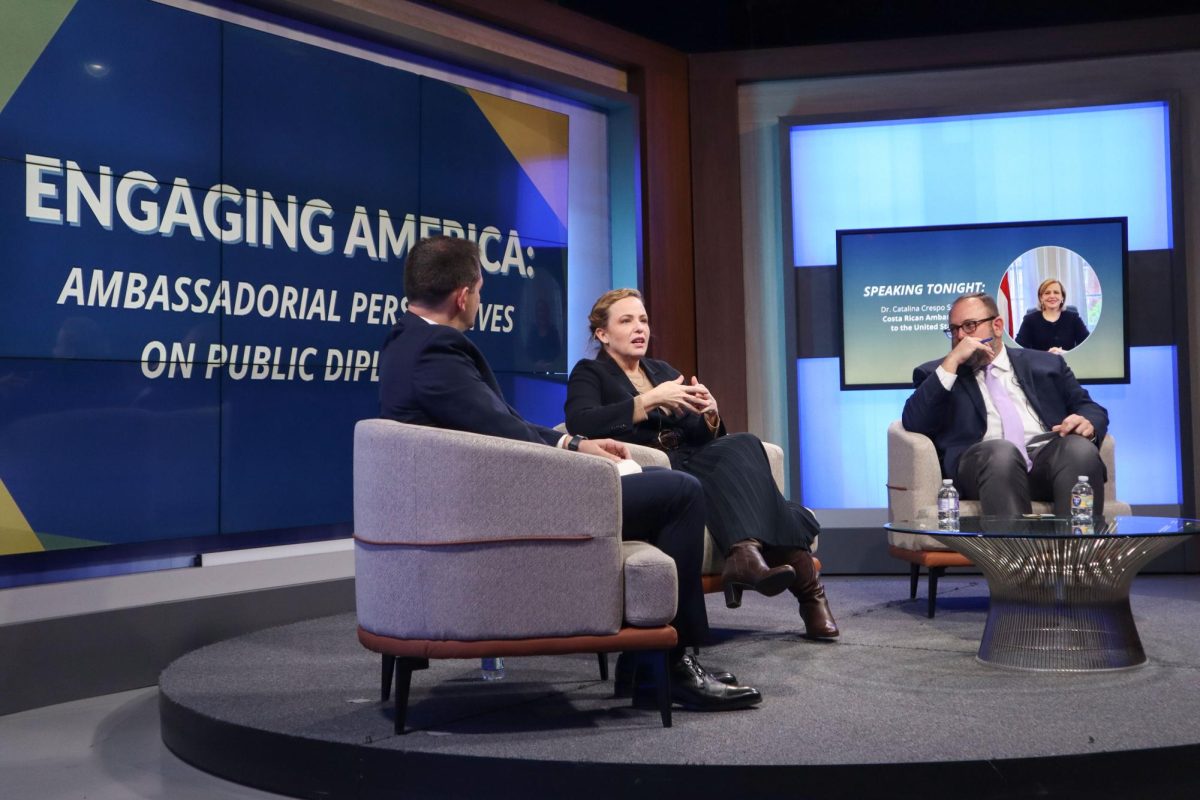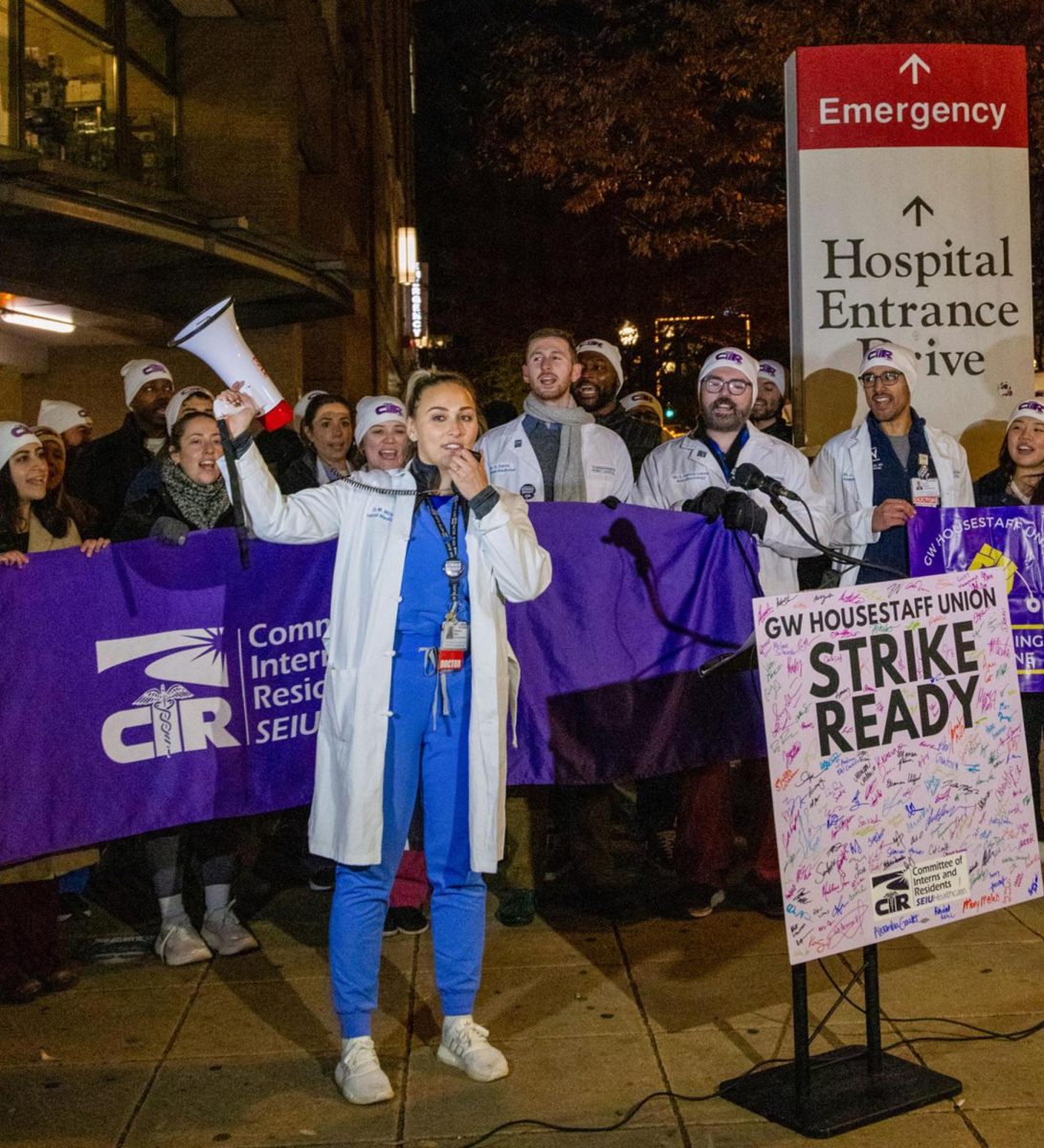Updated: Tuesday, July 4, 2023, at 3:52 p.m.
Sen. Bernie Sanders (D-Vt.) voiced support for a nursing union at GW Hospital following a rally that more than 60 people attended Wednesday in support of the ongoing union election.
Current and former GW Hospital nurses and labor organizers spoke in support of reducing nurse-to-patient ratios and improving wages at a rally in Washington Circle Wednesday, marking the first day of voting in a union election with the District of Columbia Nurses Association. The union election, which follows allegations of anti-union actions from hospital management, ends Saturday and comes after DCNA filed for election with the National Labor Relations Board on behalf of 750 GW Hospital nurses in March.
Kenneth Page, a DCNA staff attorney, said earlier this month GW Hospital or DCNA can challenge the eligibility of roughly 60 employees’ votes and that the NLRB will officially certify DCNA as the nurses’ union if they win the election by a margin greater than the number of challenges. He alleged last month that hospital management has removed pro-union signage, put glass frames over bulletin boards in the hospital to prevent union representatives from posting material and held meetings where they dissuaded nurses from unionizing.
Ed Smith, DCNA’s executive director, said Wednesday that officials will hold the union vote in the executive offices boardroom at GW Hospital, and that nurses will need to provide their names to demonstrate their eligibility before voting by secret ballot. Smith said at the rally nearly one-fourth of nurses voted in the election on the first day of voting.
“I’m proud to stand here with some great nurses,” Smith said. “They’ve been fighters. They’ve been strong.”
Sanders, who met with GW Hospital nurses earlier this month, wrote a letter Thursday to GW Hospital CEO Kimberly Russo requesting the hospital refrain from interfering in the election. Sanders said in the letter he “strongly” supports nurses’ efforts to unionize and is “deeply concerned” by allegations of the hospital’s anti-union efforts.
Sanders said in the letter GW Hospital and Universal Health Services, the health care provider that manages the hospital, fired registered nurse Angelo Estrellas as part of “illegal union busting tactics.” DCNA claimed in a March release that Estrellas was terminated because of his involvement in organizing a union at the hospital and went on to to file four unfair labor practice complaints in response to allegations of anti-union actions from hospital management, reorganizing the charges into two cases in April.
“This is your opportunity to do the right thing and work with your employees to improve your hospital for workers and patients,” Sanders’ letter reads.
Eight D.C. Council members and D.C. Council Chair Phil Mendelson signed a letter to Russo in May that requests the hospital allow nurses to hold a “fair and free” union vote and refrain from illegal conduct that may dissuade nurses from unionizing.
Nurses at Wednesday’s rally carried balloons and signs with slogans like “Patients over profits” and “Vote for nurses not UHS purses.” Nurses attending the rally clasped hands and sang pro-union songs with lyrics like “solidarity forever, for the union makes us strong.”
Lisa-Marie Cook, who has been a nurse at GW Hospital for 25 years, said her pay increase has been between 1.25 percent and 1.5 percent on average during her entire career at the hospital. She said nursing management has been unwilling to increase pay, and she hopes a union can help salaries match inflation.
“We have to make a living,” Cook said. “We have to make enough so that we can retire.”
Multiple unionization efforts at other UHS-owned facilities have failed, like those at medical centers in Pennsylvania, California and Nevada.
Julie Case, a labor and delivery nurse at GW Hospital, said she realized the practices at GW Hospital were “unjust” when she worked as a traveling nurse and saw the conditions other hospitals described as “crisis level” were better than those at GW Hospital.
“We kind of got to the point where we felt like something had to change,” Case said. “Things were getting to an unacceptable level in terms of being unable to provide the level of patient care that we want to.”
Case said when she started at GW Hospital in February 2018, management had a tendency to ignore concerns nurses raised, which worsened with time. Case said the hospital maintained pandemic-era working conditions even after the pandemic subsided, ignoring the “tremendous” damage those conditions did to nurses.
“After things started to go back to normal, it was almost like the hospital realized that they could scrape by,” she said.
Courtney Amal, the rapid response nurse at GW Hospital, said her “primary reason” for attending the rally is that she hopes to improve nurse-to-patient ratios. She said nurses now frequently take up to six patients, but when she first left nursing school, the norm was no more than five patients to one nurse.
“If you have nurses who are taking six patients and all of them are taking six patients, we don’t have the opportunity to really help one another when it’s necessary,” Amal said. “Because it’s actually a lot of work to take care of six patients per shift.”
The New York State Nurses Association reached an agreement to maintain enforceable nurse-to-patient ratios after nurses went on strike in January.
Ianne Salvosa contributed reporting.
This post was updated to reflect the following:
The Hatchet incorrectly reported that Case began working for GW Hospital in 2002. Case started at GW Hospital in 2018. We regret this error.










